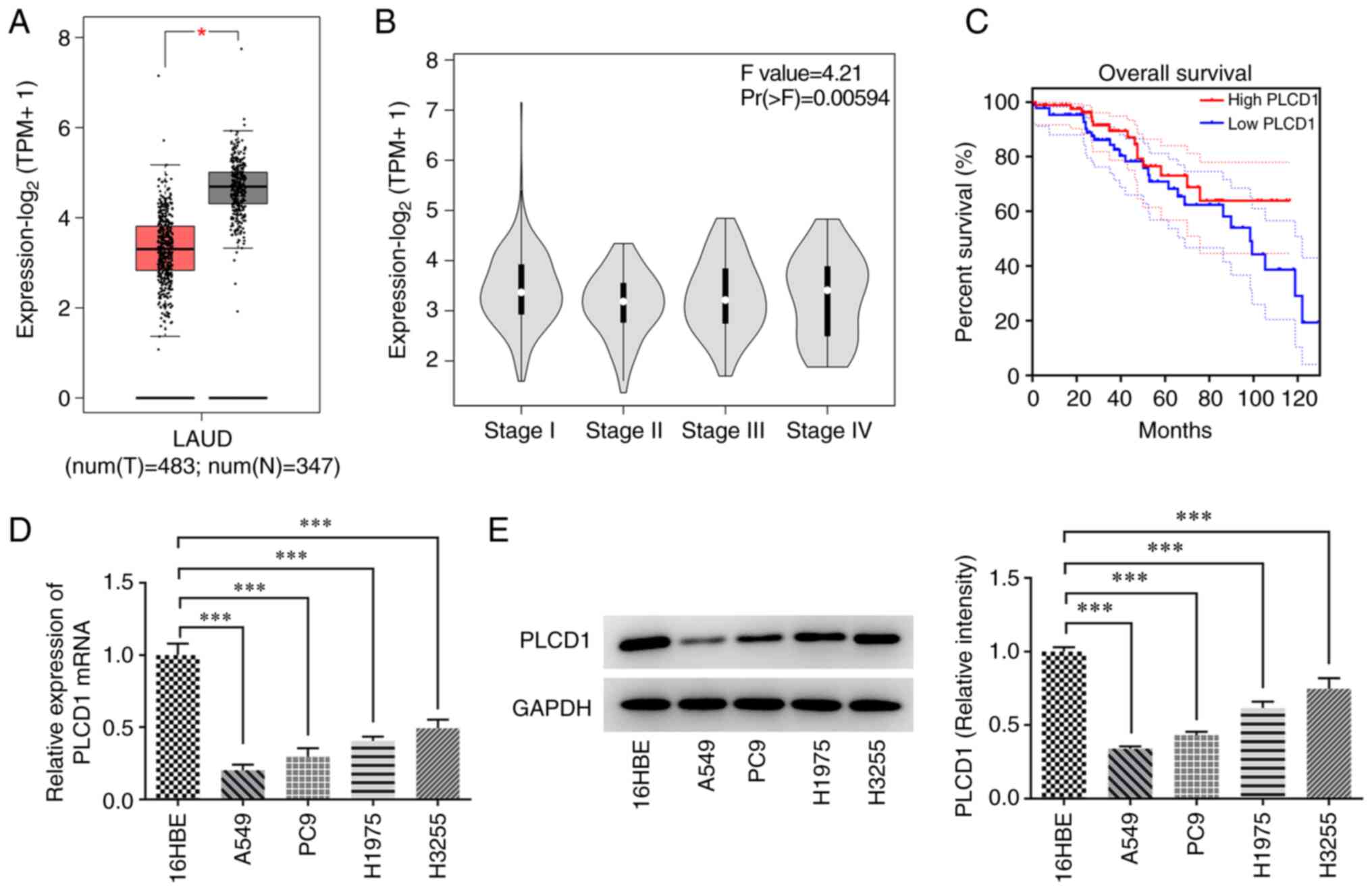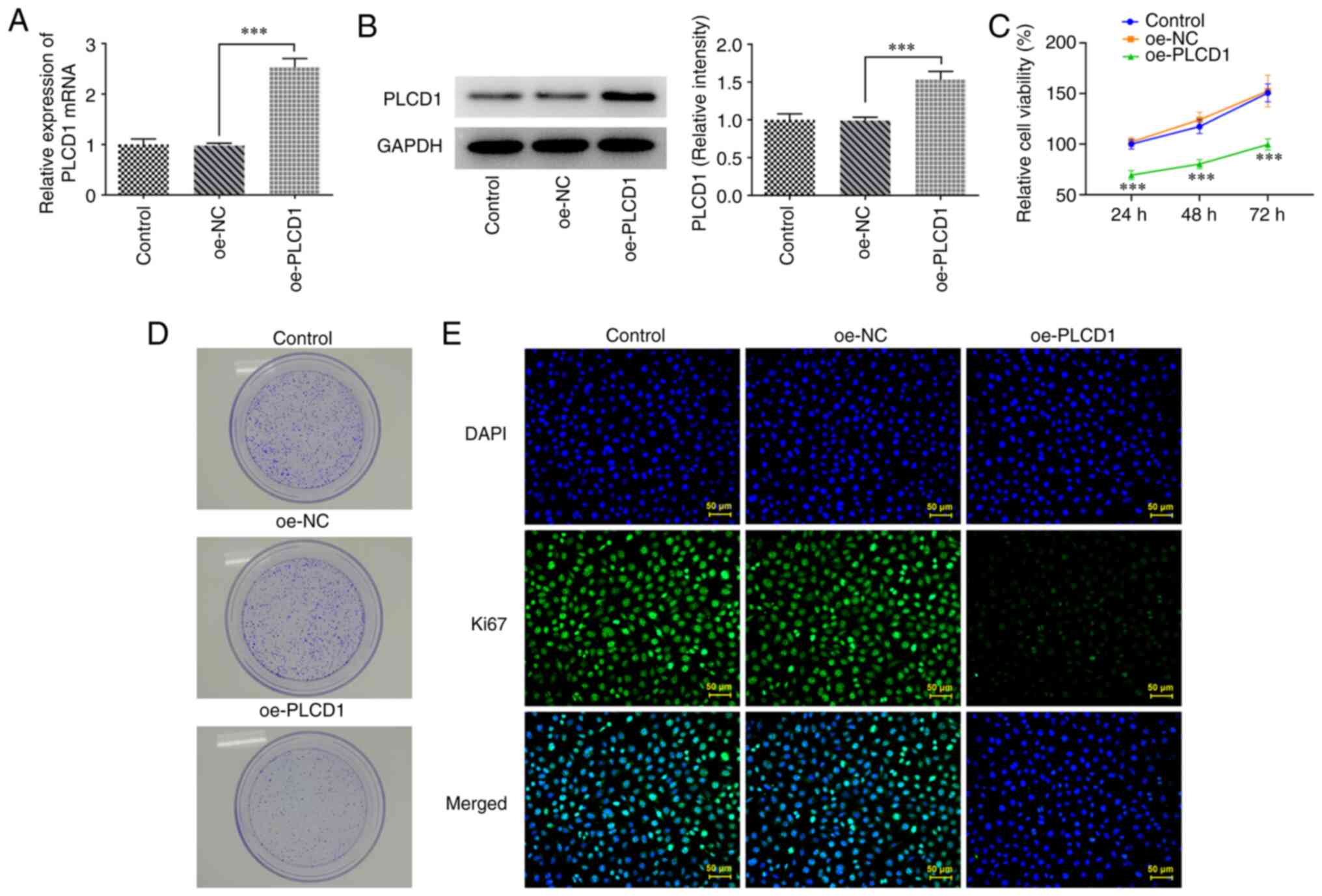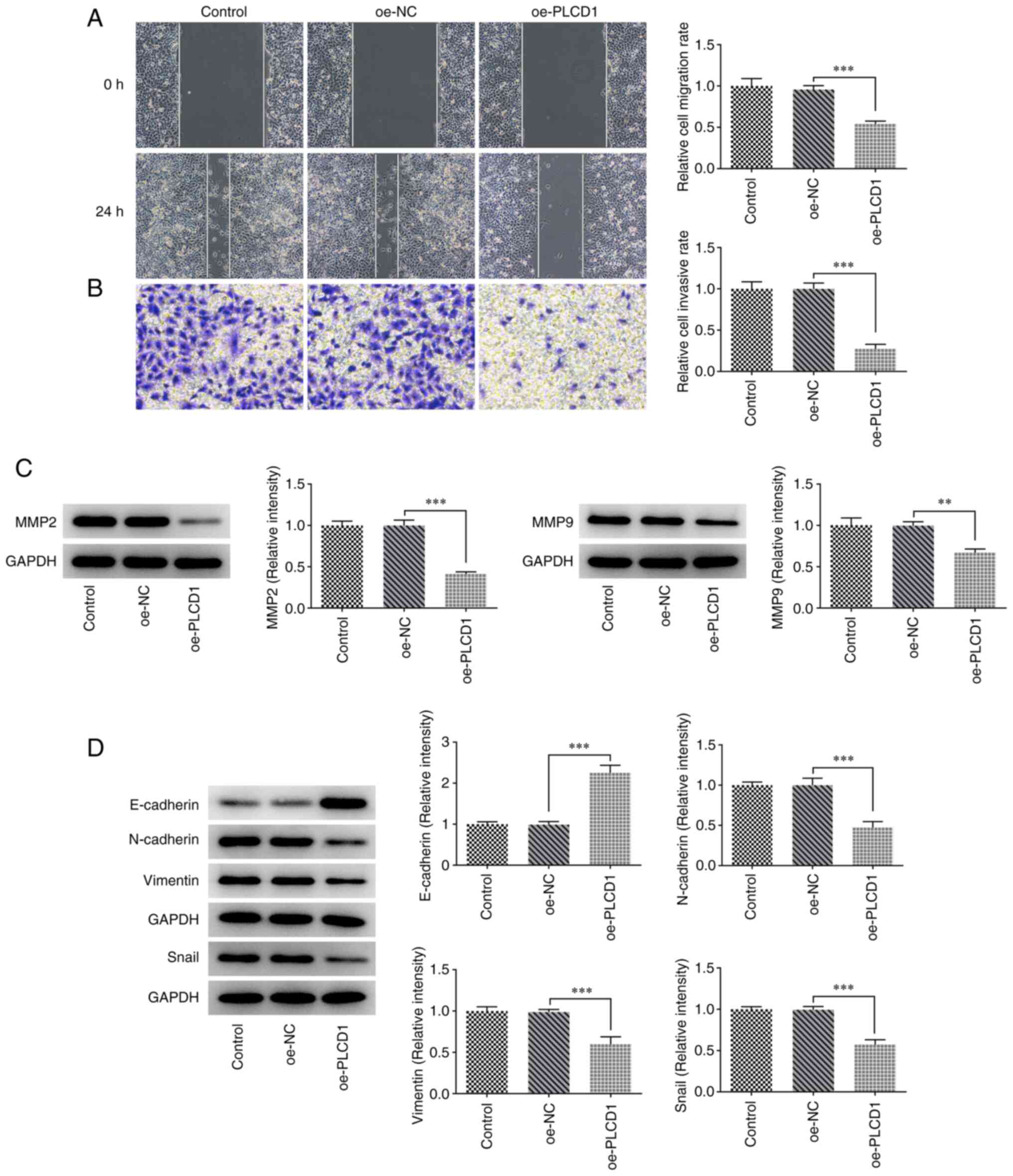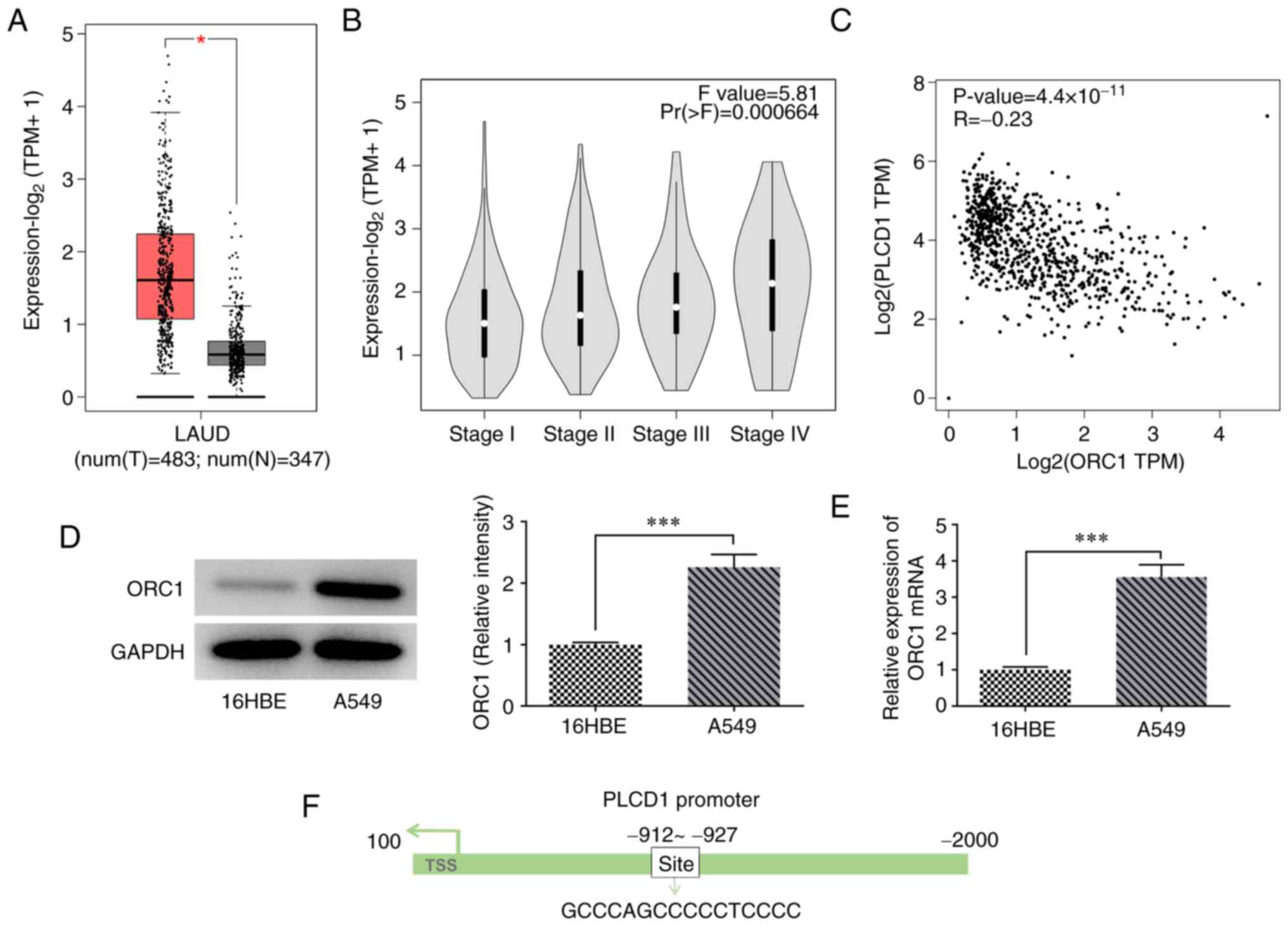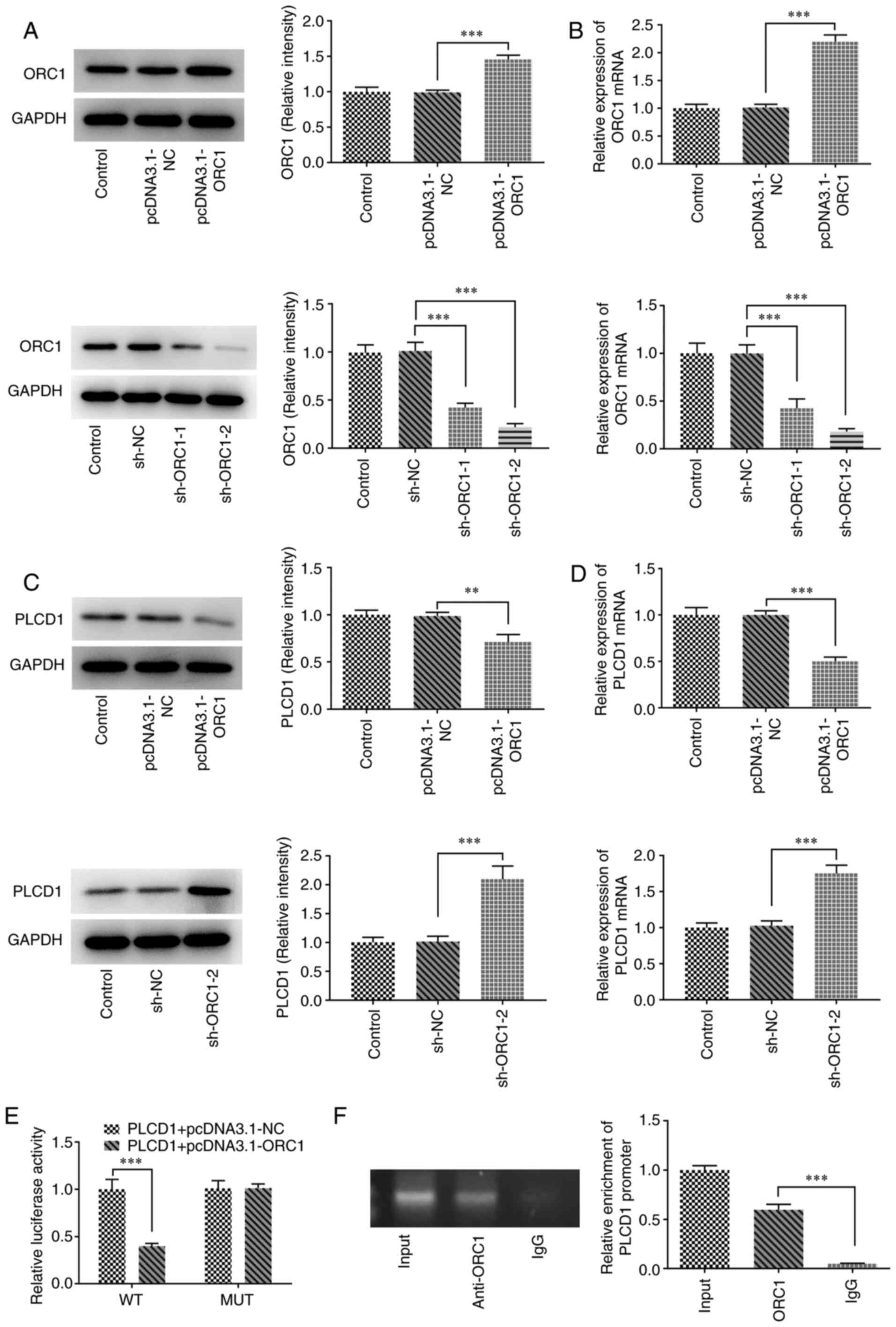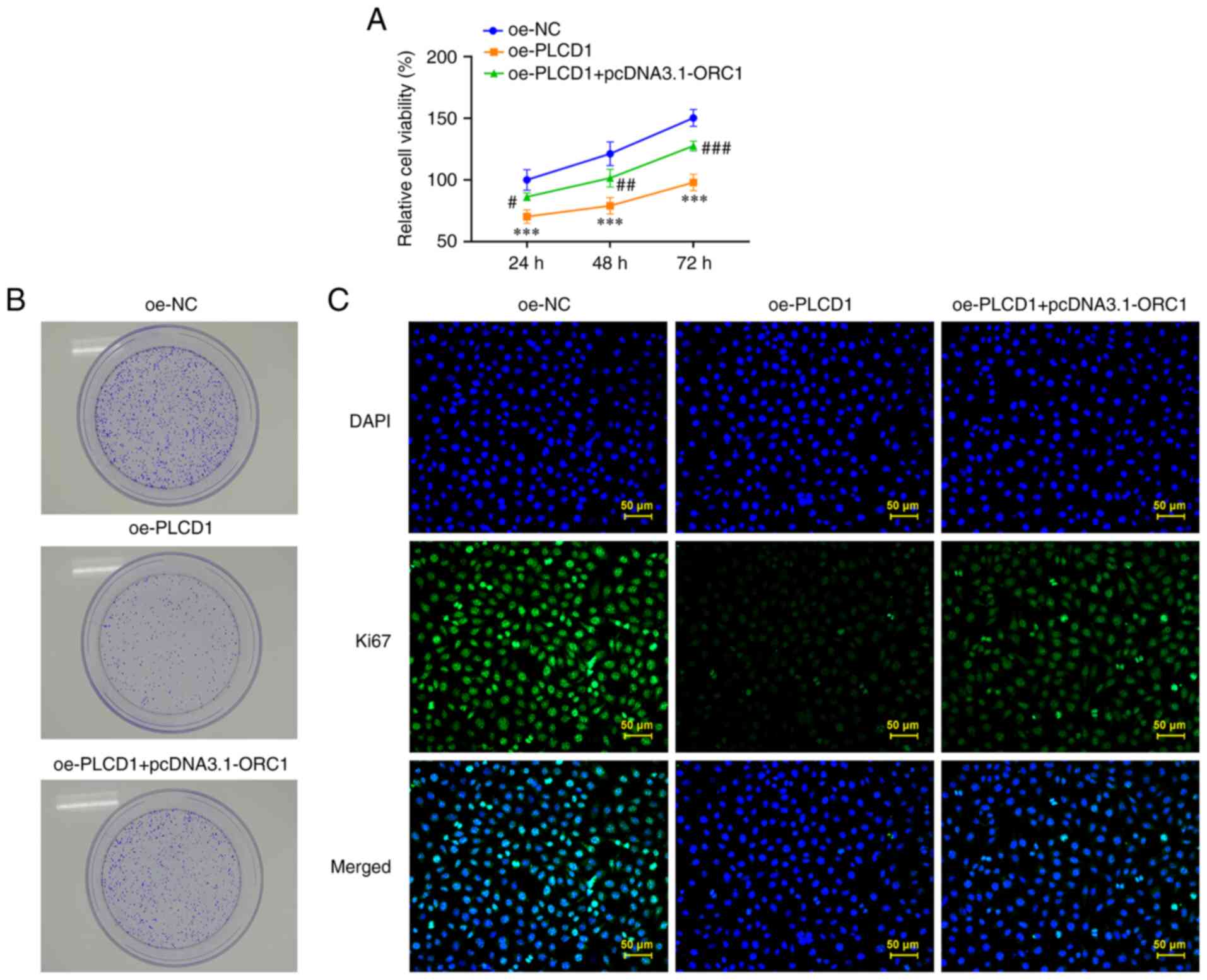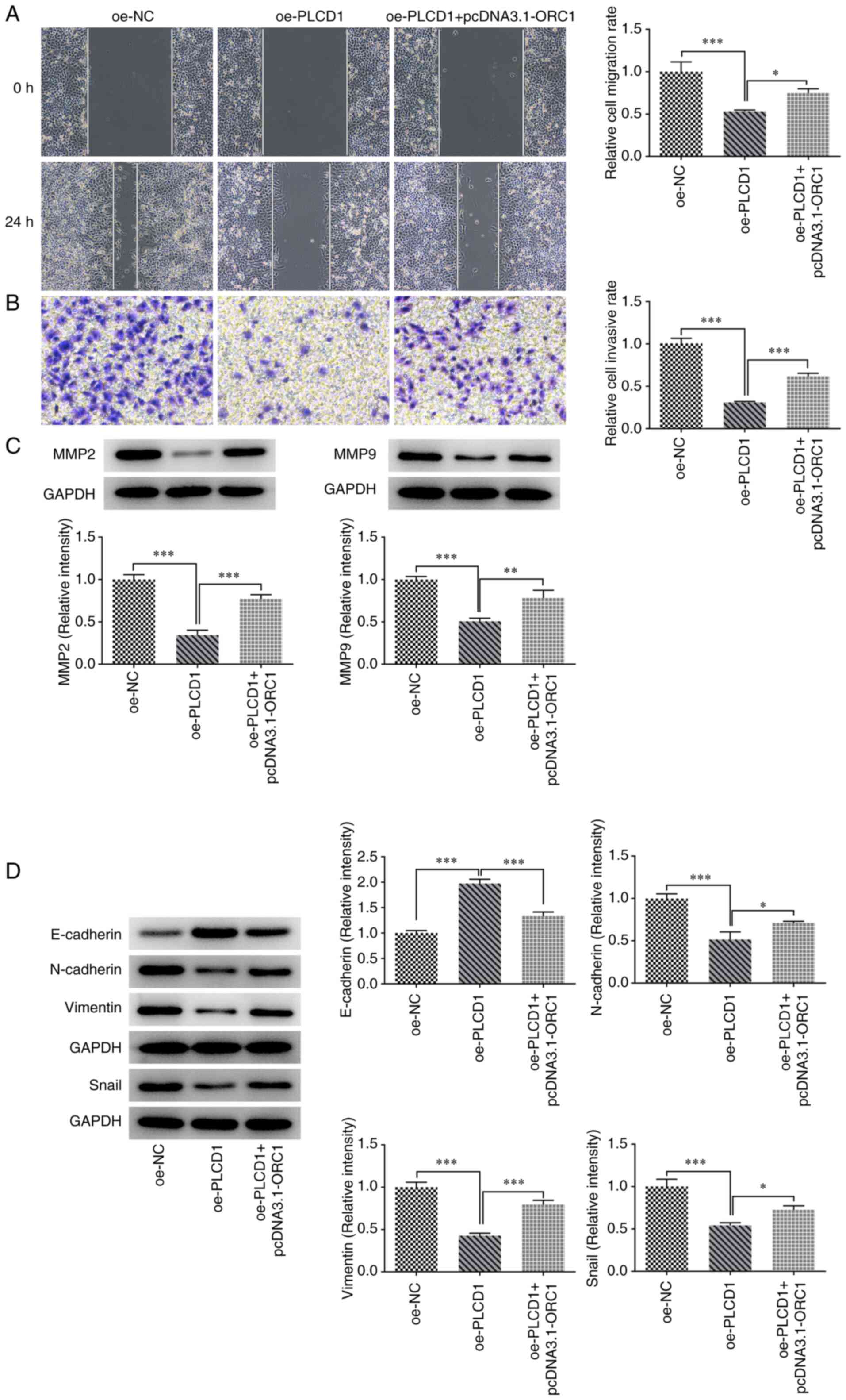|
1
|
Torre LA, Siegel RL and Jemal A: Lung
cancer statistics. Adv Exp Med Biol. 893:1–19. 2016. View Article : Google Scholar : PubMed/NCBI
|
|
2
|
Hirsch FR, Scagliotti GV, Mulshine JL,
Kwon R, Curran WJ Jr, Wu YL and Paz-Ares L: Lung cancer: Current
therapies and new targeted treatments. Lancet. 389:299–311. 2017.
View Article : Google Scholar : PubMed/NCBI
|
|
3
|
Schabath MB and Cote ML: Cancer progress
and priorities: Lung cancer. Cancer Epidemiol Biomarkers Prev.
28:1563–1579. 2019. View Article : Google Scholar : PubMed/NCBI
|
|
4
|
Ruiz-Cordero R and Devine WP: Targeted
therapy and checkpoint immunotherapy in lung cancer. Surg Pathol
Clin. 13:17–33. 2020. View Article : Google Scholar : PubMed/NCBI
|
|
5
|
Denisenko TV, Budkevich IN and Zhivotovsky
B: Cell death-based treatment of lung adenocarcinoma. Cell Death
Dis. 9:1172018. View Article : Google Scholar : PubMed/NCBI
|
|
6
|
Abe Y and Tanaka N: The Hedgehog signaling
networks in lung cancer: The mechanisms and roles in tumor
progression and implications for cancer therapy. Biomed Res Int.
2016:79692862016. View Article : Google Scholar : PubMed/NCBI
|
|
7
|
Fukami K, Inanobe S, Kanemaru K and
Nakamura Y: Phospholipase C is a key enzyme regulating
intracellular calcium and modulating the phosphoinositide balance.
Prog Lipid Res. 49:429–437. 2010. View Article : Google Scholar : PubMed/NCBI
|
|
8
|
Lattanzio R, Piantelli M and Falasca M:
Role of phospholipase C in cell invasion and metastasis. Adv Biol
Regul. 53:309–318. 2013. View Article : Google Scholar : PubMed/NCBI
|
|
9
|
Fujii M, Yi KS, Kim MJ, Ha SH, Ryu SH, Suh
PG and Yagisawa H: Phosphorylation of phospholipase C-delta 1
regulates its enzymatic activity. J Cell Biochem. 108:638–650.
2009. View Article : Google Scholar : PubMed/NCBI
|
|
10
|
Shao Q, Luo X, Yang D, Wang C, Cheng Q,
Xiang T and Ren G: Phospholipase Cδ1 suppresses cell migration and
invasion of breast cancer cells by modulating KIF3A-mediated
ERK1/2/β-catenin/MMP7 signalling. Oncotarget. 8:29056–29066. 2017.
View Article : Google Scholar : PubMed/NCBI
|
|
11
|
Song JJ, Liu Q, Li Y, Yang ZS, Yang L,
Xiang TX, Ren GS and Chen JB: Epigenetic inactivation of PLCD1 in
chronic myeloid leukemia. Int J Mol Med. 30:179–184.
2012.PubMed/NCBI
|
|
12
|
Hu XT, Zhang FB, Fan YC, Shu XS, Wong AH,
Zhou W, Shi QL, Tang HM, Fu L, Guan XY, et al: Phospholipase C
delta 1 is a novel 3p22.3 tumor suppressor involved in cytoskeleton
organization, with its epigenetic silencing correlated with
high-stage gastric cancer. Oncogene. 28:2466–2475. 2009. View Article : Google Scholar : PubMed/NCBI
|
|
13
|
Ishikawa S, Takahashi T, Ogawa M and
Nakamura Y: Genomic structure of the human PLCD1 (phospholipase C
delta 1) locus on 3p22–>p21.3. Cytogenet Cell Genet. 78:58–60.
1997. View Article : Google Scholar : PubMed/NCBI
|
|
14
|
Murata Y, Tamari M, Takahashi T, Horio Y,
Hibi K, Yokoyama S, Inazawa J, Yamakawa K, Ogawa A, Takahashi T, et
al: Characterization of an 800 kb region at 3p22-p21.3 that was
homozygously deleted in a lung cancer cell line. Hum Mol Genet.
3:1341–1344. 1994. View Article : Google Scholar : PubMed/NCBI
|
|
15
|
Chen X, Xiong D, Ye L, Wang K, Huang L,
Mei S, Wu J, Chen S, Lai X, Zheng L and Wang M: Up-regulated lncRNA
XIST contributes to progression of cervical cancer via regulating
miR-140-5p and ORC1. Cancer Cell Int. 19:452019. View Article : Google Scholar : PubMed/NCBI
|
|
16
|
Ohtani K, DeGregori J, Leone G, Herendeen
DR, Kelly TJ and Nevins JR: Expression of the HsOrc1 gene, a human
ORC1 homolog, is regulated by cell proliferation via the E2F
transcription factor. Mol Cell Biol. 16:6977–6984. 1996. View Article : Google Scholar : PubMed/NCBI
|
|
17
|
Livak KJ and Schmittgen TD: Analysis of
relative gene expression data using real-time quantitative PCR and
the 2(−Delta Delta C(T)) method. Methods. 25:402–408. 2001.
View Article : Google Scholar : PubMed/NCBI
|
|
18
|
Li H, Han D, Hou Y, Chen H and Chen Z:
Statistical inference methods for two crossing survival curves: A
comparison of methods. PLoS One. 10:e01167742015. View Article : Google Scholar : PubMed/NCBI
|
|
19
|
Jones GS and Baldwin DR: Recent advances
in the management of lung cancer. Clin Med (Lond). 18 (Suppl
2):S41–S46. 2018. View Article : Google Scholar : PubMed/NCBI
|
|
20
|
Qin YR, Fu L, Sham PC, Kwong DL, Zhu CL,
Chu KK, Li Y and Guan XY: Single-nucleotide polymorphism-mass array
reveals commonly deleted regions at 3p22 and 3p14.2 associate with
poor clinical outcome in esophageal squamous cell carcinoma. Int J
Cancer. 123:826–830. 2008. View Article : Google Scholar : PubMed/NCBI
|
|
21
|
Xiang Q, He X, Mu J, Mu H, Zhou D, Tang J,
Xiao Q, Jiang Y, Ren G, Xiang T and Peng W: The phosphoinositide
hydrolase phospholipase C delta1 inhibits epithelial-mesenchymal
transition and is silenced in colorectal cancer. J Cell Physiol.
234:13906–13916. 2019. View Article : Google Scholar : PubMed/NCBI
|
|
22
|
He X, Meng F, Yu ZJ, Zhu XJ, Qin LY, Wu
XR, Liu ZL, Li Y and Zheng YF: PLCD1 suppressed cellular
proliferation, invasion, and migration via inhibition of
Wnt/β-catenin signaling pathway in esophageal squamous cell
carcinoma. Dig Dis Sci. 66:442–451. 2021. View Article : Google Scholar : PubMed/NCBI
|
|
23
|
Mu H, Wang N, Zhao L, Li S, Li Q, Chen L,
Luo X, Qiu Z, Li L, Ren G, et al: Methylation of PLCD1 and
adenovirus-mediated PLCD1 overexpression elicits a gene therapy
effect on human breast cancer. Exp Cell Res. 332:179–189. 2015.
View Article : Google Scholar : PubMed/NCBI
|
|
24
|
Hu D and Jiang Z: Phospholipase C δ1
(PLCD1) inhibits the proliferation, invasion and migration of
CAPAN-1 and BXPC-3 pancreatic cancer cells. Xi Bao Yu Fen Zi Mian
Yi Xue Za Zhi. 32:739–745. 2016.(In Chinese). PubMed/NCBI
|
|
25
|
Zhou X, Liao X, Wang X, Huang K, Yang C,
Yu T, Han C, Zhu G, Su H, Han Q, et al: Noteworthy prognostic value
of phospholipase C delta genes in early stage pancreatic ductal
adenocarcinoma patients after pancreaticoduodenectomy and potential
molecular mechanisms. Cancer Med. 9:859–871. 2020. View Article : Google Scholar : PubMed/NCBI
|
|
26
|
Wang XK, Wang QQ, Huang JL, Zhang LB, Zhou
X, Liu JQ, Chen ZJ, Liao XW, Huang R, Yang CK, et al: Novel
candidate biomarkers of origin recognition complex 1, 5 and 6 for
survival surveillance in patients with hepatocellular carcinoma. J
Cancer. 11:1869–1882. 2020. View Article : Google Scholar : PubMed/NCBI
|
|
27
|
Park SY and Asano M: Function of the
origin recognition complex 1 (ORC1) outside DNA replication in
Drosophila. Cell Cycle. 10:3957–3963. 2011. View Article : Google Scholar : PubMed/NCBI
|
|
28
|
Xiong W, Xie C, Qiu Y, Tu Z and Gong Q:
Origin recognition complex subunit 1 regulates cell growth and
metastasis in glioma by altering activation of ERK and JNK
signaling pathway. Mol Cell Probes. 49:1014962020. View Article : Google Scholar : PubMed/NCBI
|
|
29
|
Stepanenko AA and Heng HH: Transient and
stable vector transfection: Pitfalls, off-target effects,
artifacts. Mutat Res Rev Mutat Res. 773:91–103. 2017. View Article : Google Scholar : PubMed/NCBI
|















